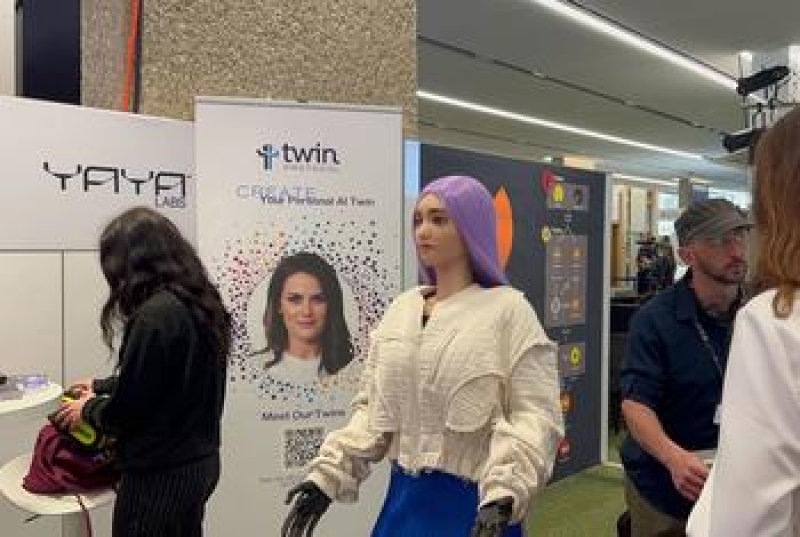- Tk 500cr Drive to Turn Haor Fallow Land Into Farmland |
- Tarique Rahman returns home amid rapturous reception |
- Home After 17 Years: Tarique Returns to Gulshan Residence |
- Tarique Calls for United Effort to Build a Safe Bangladesh |
- Tarique leaves for 300 feet area from airport |
UN Launches Global Push for Inclusive AI Governance

AI for Good Summit 2024, Geneva. Credit: UN News/Anton Uspensky
Investment, optimism and anxiety: these are three of the big drivers of interest in artificial intelligence and its implications. Because the challenges and opportunities are global, the responses also need to be far more comprehensive than the fragmented and siloed solutions that have been enacted thus far. A UN report from 2024 found that 118 countries were not parties to any of the significant “international” AI governance initiatives created in recent years, and only seven nations, all from the developed world, were parties to all of the initiatives.
The High-level General Assembly meeting on AI governance, held on Thursday, 25 September, marks the first time that all 193 Member States of the UN will have a say in the way international AI governance is developed. This event will seek to address this lack of representation: as well as diplomats from around the world, the meeting will gather together scientists, members of the tech community, the private sector and civil society.
The meeting will focus on two new landmark bodies designed to kickstart a much more inclusive form of international governance, address the issues surrounding this powerful technology, and ensure that it benefits all people: the Global Dialogue on AI Governance and the Independent International Scientific Panel on AI.
Both bodies grew out of recommendations made by a group of experts and lawmakers (the High-level Advisory Body on Artificial Intelligence) in a 2024 UN report, Governing AI for Humanity, and were established through a UN General Assembly resolution in August 2025, endorsed unanimously by all Member States and hailed by UN Secretary-General António Guterres as “a significant step forward in global efforts to harness the benefits of artificial intelligence while addressing its risks.”
The purpose of Thursday’s Dialogue is to share best practices, enhance the international interoperability of AI governance and share significant AI incidents. The Dialogue, which is expected to become the world’s principal venue for collective focus on AI, will create a shared space for governments, industry, civil society and scientists to exchange best practices and foster common ground, based on shared principles.
The International Panel, with support from the UN system, will provide impartial, evidence-based guidance on risks, opportunities and impacts of AI, and will help ensure that policymaking is grounded in independent scientific assessments.
The Panel will produce an annual report, to be presented at the annual meeting of the Dialogue.
“These two global mechanisms are not just new functions,” Amandeep Singh Gil, the UN Special Envoy for Digital and Emerging Technologies, told UN News. “They are building blocks of a new architecture of technology governance. They are our promise to future generations to ensure that humanity remains at the centre of technological progress."
Mr Gil reinforced the groundbreaking step represented by the High-level event: “AI’s impact is global, but its governance is not. Through the Global Dialogue, for the first time, all 193 Member States of the UN will have a seat at the table in shaping international cooperation on AI governance.”
He also explained: “The Scientific Panel will bring together leading scientists from across the globe to narrow the cone of uncertainty around the risks, opportunities and impacts of AI. The Panel will help ensure that AI policy is grounded in impartial evidence.”
The speakers at the High-level event:
• Speakers will include Annalena Baerbock, the President of the General Assembly at its 80th session, António Guterres, the UN Secretary-General, as well as Pedro Sánchez Pérez-Castejón, the Prime Minister of Spain, and Arnoldo André Tinoco, Minister of Foreign Affairs of Costa Rica.
• The speeches will be followed by statements by United Nations Member States and Observers, as well as by UN system entities and other stakeholders, with statements by non-governmental actors interspersed regularly among those of Member States.

